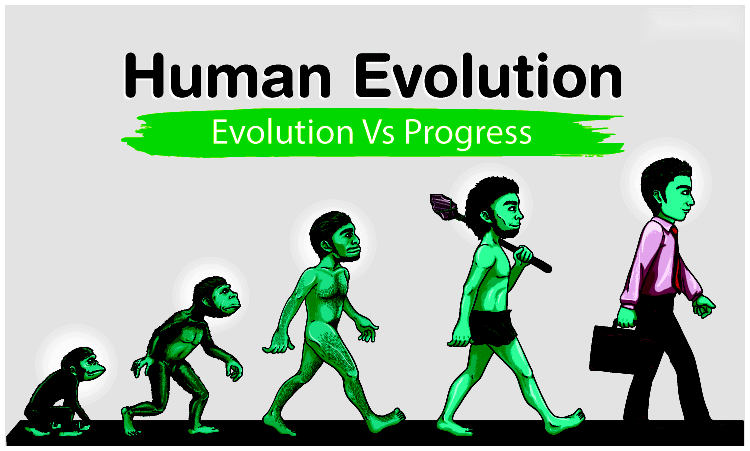The Bahá’í teachings present a profound and intricate perspective on the progress of the soul and the evolution of human society. It is through the lens of these teachings that one can appreciate the dialectic relationship between individual spiritual growth and collective development. The Bahá’í vision posits that just as an acorn imperceptibly transforms into a towering oak, so too does the human soul evolve, both in its personal journeys and in its collective consciousness.
At the heart of Bahá’í doctrine lies the concept of the inherent unity of humanity. This unifying principle asserts that all human beings, regardless of race, nationality, or creed, are part of a single family seeking both material and spiritual advancement. Consequently, as the soul progresses, it catalyzes societal transformation, much like a pebble tossed into a serene pond generates ripples that extend outward. Such an analogy illustrates the interconnectedness of individual spiritual progress and its societal repercussions.
**I. Understanding the Nature of the Soul**
The Bahá’í teachings delineate the soul as an eternal essence that transcends the physical realm. It is described as an emanation from the Divine, reflecting attributes such as love, justice, and wisdom. Just as a diamond, although seemingly unremarkable in its raw state, requires refinement to reveal its brilliance, the human soul too demands nurturing and ethical cultivation. This process of spiritual education not only augments personal enlightenment but also contributes to the societal fabric.
The metaphor of the soul as a candle encapsulates its luminous potential. When fed by the oil of knowledge, it illuminates the surrounding darkness, guiding others toward spiritual awakening. This illumination promotes collective harmony, empowering communities to forge a path of unity and understanding.
**II. The Role of Education in Spiritual and Societal Progress**
Education, as underscored within Bahá’í teachings, constitutes a vital conduit through which both the soul and society evolve. It is seen as a fundamental right and the bedrock for achieving individual and collective potential. Symbolically likened to a garden that necessitates diligent care and attention, education nurtures the seeds of truth that proliferate into flourishing minds and, ultimately, a more enlightened society.
In this context, education extends beyond mere academic acquisition; it embodies moral and spiritual development. The Bahá’í teaching emphasizes the need for a curriculum that interweaves both material and spiritual knowledge, asserting that true education cultivates the virtues that bind humanity together. Such preparation fosters a new generation of individuals who are capable of tackling the challenges of an increasingly complex world.
**III. Collective Endeavors Towards Social Justice**
The evolution of human society is deeply entwined with the quest for social justice, a principle that resonates throughout Bahá’í thought. It is posited that as individual souls traverse their journey toward spiritual maturity, they must also grapple with the moral imperative to uplift the marginalized and advocate for equity. The quest for justice can be analogized to the forging of a symphony, where each note, representing diverse voices, harmonizes to create a unified melody. This allegory highlights the importance of inclusivity and collaboration in societal evolution.
Furthermore, the teachings advocate for the elimination of all forms of prejudice, engendering an environment wherein diverse perspectives coalesce to enhance societal welfare. The act of dismantling prejudice is not simply an ethical obligation, but a means to foster understanding and cooperation in a pluralistic society.
**IV. The Quest for Global Civilization**
The Bahá’í vision extends to the establishment of a global civilization grounded in spiritual and material prosperity. This aspirational concept is akin to a vast tapestry, woven from the threads of various cultures, traditions, and ideas, forming a cohesive and vibrant whole. Just as a skilled artisan selects each thread with care, so too must humanity deliberate on how to harmonize its diversity into a singular entity characterized by peace and cooperation.
The advent of global communication technologies serves as an instrument for this vision. It facilitates the exchange of ideas and fosters relationships across geographical boundaries, echoing the Bahá’í principle of the oneness of humanity. By consciously participating in this interconnected discourse, individuals can contribute to the evolution of a prosperous global society.
**V. Spiritual Solutions to Contemporary Challenges**
In contemplating the current tribulations facing human society—conflict, inequality, and environmental degradation—Bahá’í teachings elucidate that these challenges necessitate spiritual responses. The evolution of the soul must manifest not only in personal transformation but also in the active pursuit of solutions that promote the common good. Every individual can thus perceive themselves as an agent of change, akin to a gentle stream that carves its path through rock over time, illustrating resilience and persistence in the face of adversity.
As humanity confronts existential dilemmas, the spiritual tools offered by the Bahá’í teachings—such as prayer, meditation, and service to others—can steer us toward a more harmonious existence. When embraced collectively, these spiritual practices illustrate the interconnectedness of all lives and inspire collaborative actions toward sustainability and justice.
**Conclusion**
In conclusion, the Bahá’í teachings illuminate a compelling narrative regarding the progress of the soul and the evolution of human society. The metaphorical paradigms employed enrich our understanding of these profound teachings, painting a vivid picture of an interconnected universe where individual growth propels societal advancement. By embracing education, justice, and global unity, humanity can navigate its evolutionary trajectory with grace and purpose, ensuring a legacy of peace and prosperity for generations to come.
